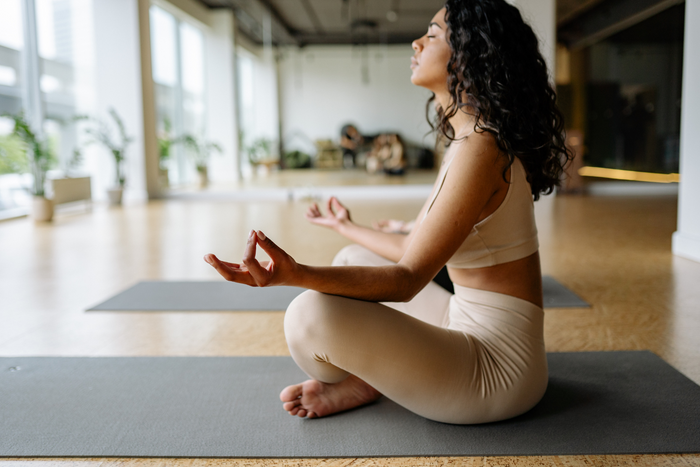Your Cart is Empty
- Shop
- About
- Learn
- Free Domestic Shipping Over $50
- +1(800)929-8935
- Login
- Free Domestic Shipping Over $50
- +1(800)929-8935


Stress can affect your mental and physical health. Learn how meditation can help you manage stress with these 10 simple techniques, from deep breathing to mindfulness.

This article explores how different sleep patterns, circadian rhythms, and even brain function contribute to this late-night efficiency and what night owls can do to stay healthy while working during their most productive hours.

A holistic approach to stress management includes lifestyle adjustments, relaxation techniques, and mindful habits that support the body’s relaxation response while reducing stress hormones. This guide explores 12 natural ways to reduce stress, enhance mental clarity, and improve stress relief for a healthier, more balanced life.

Yoga offers a natural way to relieve stress, improve flexibility, and support mental health. Practicing yoga regularly helps relax tense muscles, promotes deep breathing, and encourages mindfulness. This guide covers the best yoga poses for stress relief and how they help bring balance to the body and mind.

Whether performed by massage therapists or through self-massage techniques, the right approach can bring a relaxed state and support overallpsychological health. This guide explores therapeutic massage methods, from deep tissue massage to pressure points, and provides practical wellness tips to help you feel relaxed and regain balance.

A diet rich in essential nutrients can support mood, immune function, and overall well-being. This guide explores 14 foods that may help promote a sense of calm and how they can contribute to a more balanced feeling while supporting overall health.

Even a few minutes of relaxation can promote a sense of calm and may help with muscle tension and stress management.Here are 10 effective relaxation techniques for busy lifestyles that promote calm, focus, and better health.

Stress balls offer a simple yet powerful way to manage stress. Find out how these tools can improve blood circulation, reduce muscle tension, and enhance focus.

Family support can take many forms, including open communication, family meals, and seeking professional help. Mental health professionals and mental health services provide valuable resources, but a strong family support network remains essential for recovery and long-term mental wellness.

Taking care of your mental health is as important as maintaining physical health. Everyday habits, such as getting enough sleep, eating well, and staying active, play a key role in overall well being. Small changes in daily routines can make a big difference in mental and social well being, helping you navigate difficult situations and enjoy life more fully.

Mental wellness is essential for overall health and quality of life. Maintaining a balance between mental and physical health helps people manage stress, build healthy relationships, and stay emotionally strong in everyday life.Understanding how to improve mental wellness with these strategies can lead to better resilience, focus, and mood.

With the start of the new year approaching, this is an ideal time to reflect on your experiences and make positive changes to reduce feelings of overwhelm, ultimately improving your overall well-being and mental health.